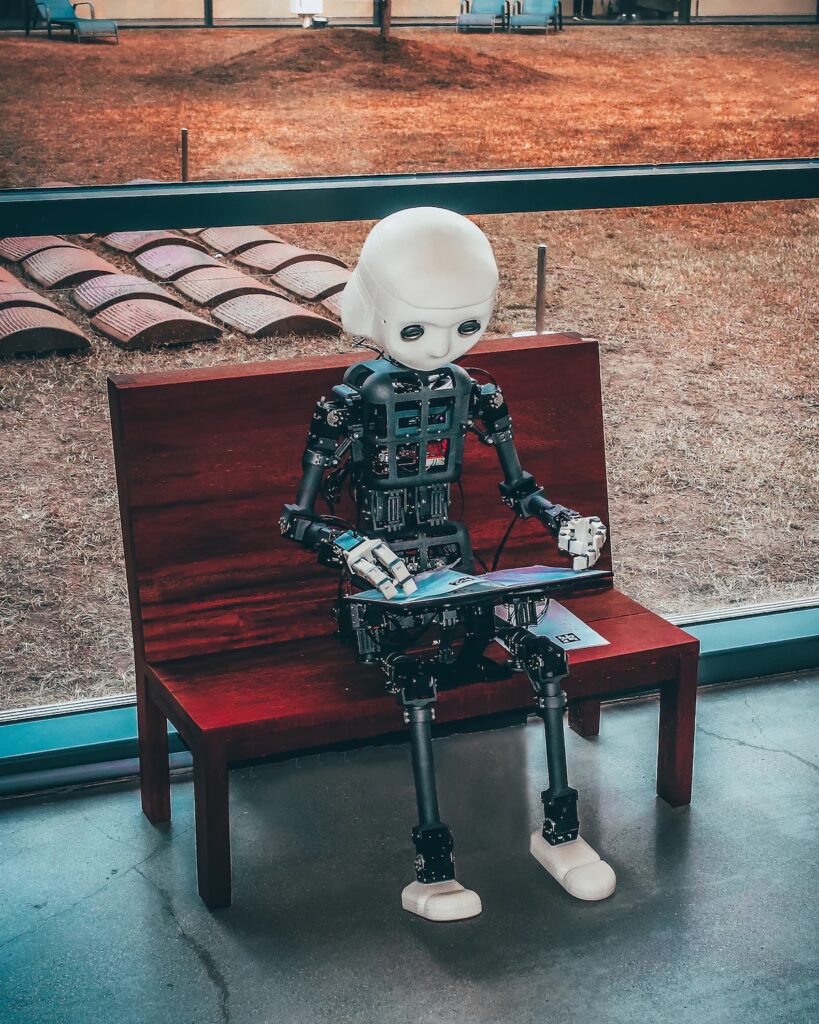“AI is neither good nor evil. It’s a tool, a technology that amplifies human intention and capability. In that sense, it’s only as good or as evil as the humans using it.”
•Max Tegmark, Physicist and AI Researcher
Introduction:
In today’s fast-paced world, technology has woven its way into nearly every aspect of our lives. We’ve got virtual assistants, self-driving cars, and, interestingly, artificial intelligence (AI) that’s shaking up the way we work and write. One question that keeps popping up is whether AI can actually take the place of human writers. In this blog, we’re going to dive into this debate, looking at what AI can do when it comes to writing, and whether it can truly replace the unique touch that humans bring to the table.

AI’s Current State:
AI has made some impressive strides when it comes to understanding and generating human-like text. Think of it as a robot writer that can draft emails, write code, and even compose essays like the one you’re reading right now. It’s so good that it’s sometimes hard to tell whether it’s a human or AI behind the words.

As of 2021, OpenAI’s GPT-3 model, one of the most advanced AI language models, boasts 175 billion parameters, making it capable of generating contextually rich and coherent text across various subjects.
Advantages of AI Writers:
- Speed and Efficiency: AI can produce content at lightning speed, making it perfect for tasks that need a lot of writing done quickly.
- Consistency: AI doesn’t waver in its style or quality, which is great for maintaining a consistent brand voice.
- Multilingual Skills: AI can hop between languages with ease, making it a global writer for a global audience.
- Data Insights: AI can sift through mountains of data to spot trends and help optimize content for better audience engagement.
- Cost-Effective: Over time, AI can be more budget-friendly than hiring human writers, especially for businesses with high writing demands.
According to a report by McKinsey, automation technologies, including AI, could potentially save businesses around $16 trillion in wages by 2030 through increased productivity.

Limitations of AI Writers:
- Lack of Creativity: AI might be great at mimicking human text, but it doesn’t have the creative spark, emotions, and unique human experiences that human writers bring to their work.
- Contextual Understanding: While AI can mimic context, it can’t fully understand the depth and nuances of certain subjects or cultural sensitivities.
- Ethical Concerns: There are some ethical concerns around AI-generated content, such as transparency, plagiarism, and how responsibly AI is used.
The Human Touch:
Human writers have that personal touch that AI just can’t replicate. They infuse their writing with emotions, empathy, and the ability to really connect with readers on a deeper level. Creative work like novels, poetry, and in-depth journalism often require that human touch.
The Future of Writing:
In the foreseeable future, it’s more likely that AI and human writers will be partners rather than rivals. AI can handle the routine and repetitive tasks, leaving human writers to focus on their creativity, critical thinking, and the more complex aspects of their craft.

Conclusion:
AI writers have come a long way and are incredibly useful, but they can’t entirely replace human writers. The future of writing will be a blend of human creativity and AI-powered efficiency. As technology keeps advancing, writers will find new ways to use AI to enhance their work, delivering even richer and more engaging content to readers all over the world.
Your thoughts matter! Do you think AI can replace the human touch in writing, or will they complement each other? Share your views below!
